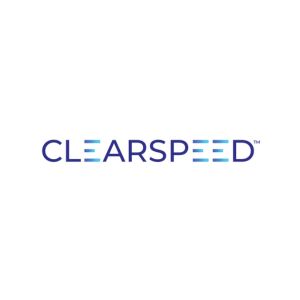
By futureTEKnow | Editorial Team
The world of large language models (LLMs) is undergoing a major transformation, thanks to a breakthrough from Multiverse Computing, a Spanish deep tech startup. The company has just closed a massive $215M million funding round, propelling its mission to make LLMs dramatically more efficient and accessible.
Bullhound Capital is set to lead the Series B funding round, joined by prominent investors including HP Tech Ventures, SETT, Forgepoint Capital International, CDP Venture Capital, Santander Climate VC, Quantonation, Toshiba, and Capital Riesgo de Euskadi – Grupo SPRI.
At the heart of Multiverse Computing’s innovation is CompactifAI, a technology that leverages quantum-inspired tensor networks (TNs) to compress LLMs by up to 95%—all while maintaining high levels of accuracy. This approach goes far beyond traditional methods like quantization and pruning, which often sacrifice performance. Instead, CompactifAI uses advanced algorithms to identify and retain only the most relevant correlations in the neural network, replacing unnecessary data with matrix product operators (MPOs).
The result? LLMs that are not only smaller but also faster and more energy-efficient. These compressed models can run on everything from cloud infrastructure to edge devices like smartphones, laptops, and even microcontrollers such as the Raspberry Pi.
The process starts with layer sensitivity profiling to pinpoint which parts of the model can be compressed without losing critical information. By substituting the original weight matrices in self-attention and multi-layer perceptron layers with MPOs, the model’s size is drastically reduced. The bond dimension of the tensor network controls the degree of compression, allowing for a fine balance between model size and accuracy.
After compression, a brief retraining phase helps restore any lost accuracy, ensuring the models remain robust and reliable. In benchmark tests, CompactifAI-compressed models retained up to 90% of the original accuracy while shrinking to just 15-30% of their initial size.
LLMs are notorious for their massive computational and energy demands. Running these models typically requires specialized cloud infrastructure, driving up costs and limiting accessibility. With CompactifAI, Multiverse Computing is making it possible to deploy powerful AI models on a much wider range of hardware, slashing inference costs by 50-80% and reducing energy consumption.
This breakthrough is a game-changer for industries looking to integrate AI without the heavy price tag or environmental impact. The new funding will help Multiverse Computing scale its technology and accelerate the adoption of affordable, high-performance AI across sectors.
With support from major investors and a rapidly growing customer base, Multiverse Computing is poised to set a new standard for AI efficiency. Their technology is not just about shrinking models—it’s about making advanced AI accessible, sustainable, and ready for real-world deployment.

Bridgit Mendler’s Northwood Space is pioneering mass-produced ground stations, enabling scalable, high-speed connectivity for the new era of satellite networks and megaconstellations.

SpaceX aims to nearly double launches from Vandenberg in 2025, facing support from federal agencies but strong objections from the state and local communities.

Traditional Medicare will pilot AI-assisted prior authorization in 2026 across six states, focusing on high-risk outpatient services. Clinicians retain final say, but incentives and access concerns loom as CMS tests fraud reduction and “gold card” exemptions. Here’s what providers and patients should know.

OpenArt’s new “one-click story” compresses scripting, visuals, and edits into ready-to-post short videos—fueling viral growth and a fresh IP debate. We break down how it works, adoption signals, what’s next (multi-character, mobile), and practical guardrails creators and brands should follow to stay original and compliant.

OpenAI’s o3 swept the Kaggle AI chess tournament, defeating xAI’s Grok 4–0. The victory fueled the intense rivalry between Altman and Musk, reshaping AI benchmarks.

NASA and Google’s AI-powered Crew Medical Officer Digital Assistant enables autonomous diagnoses for astronauts on Mars missions, redefining remote healthcare for space and Earth.

Pinterest’s CEO confirms that fully agentic AI shopping is years away, as the platform invests in AI-powered tools to enhance discovery, inspiration, and personalized shopping experiences for millions.

Shopify’s new AI shopping tools are transforming e-commerce, letting agents and chatbots deliver smooth, personalized shopping and checkout experiences across platforms. Learn how these innovations reshape online retail.

Meta has acquired WaveForms AI, a startup pioneering emotion-detecting voice technology. Learn what this means for Meta’s AI voice ambitions and the future of AI audio.

Tracelight is revolutionizing financial modelling for finance professionals with AI-powered Excel tools that automate complex tasks, reduce errors, and unlock new analysis capabilities. Learn how this next-gen solution changes the future of spreadsheets.

China’s Lanyue lander completed its first major test, showcasing advanced engineering for safe, crewed moon landings before 2030. Explore how this milestone shapes the space race.

Microsoft rolls out GPT-5 across its Copilot suite, integrating smarter AI for enterprise and personal users. Discover new features, free access, and what sets this launch apart.
To provide the best experiences, we use technologies like cookies to store and/or access device information. Consenting to these technologies will allow us to process data such as browsing behavior or unique IDs on this site. Thanks for visiting futureTEKnow.